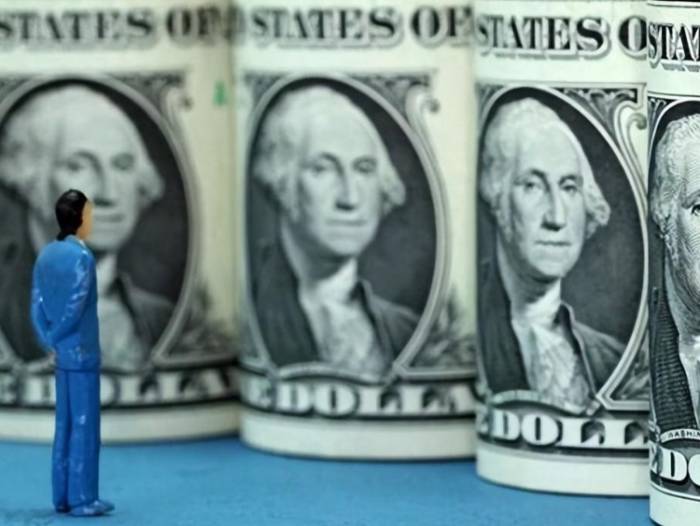In recent weeks, the U.S. stock market's focus has shifted dramatically as concerns surrounding potential interest rate cuts by the Federal Reserve have lessened. Last Friday saw a collective rise in all three major indexes, with the Dow Jones Industrial Average climbing nearly 1% to reach a historic high, while the S&P 500 Index increased by 0.35% to mark its fifth consecutive day of gains. The tech-heavy Nasdaq followed suit with a moderate increase of 0.16%. Small-cap stocks, however, particularly stood out; the Russell 2000 Index experienced a substantial jump of 1.8% as investors shifted their preferences.
Analyzing the weekly performance, the Dow rose by 2%, the S&P 500 and Nasdaq both gained 1.7%, and the Russell 2000 showed impressive growth with a 4.5% increase. This momentum can be attributed to expectations of tax reductions and regulatory rollbacks under the next presidential term, which are projected to benefit American businesses, especially smaller companies and industrial sectors.
Sam Stovall, the chief investment strategist at CFRA Research, highlights that investors are beginning to transition from previously favored sectors, such as communications and technology, towards cyclical areas including consumer discretionary, industrials, and financial stocks. This movement is largely driven by the traditional year-end rally associated with election years.
On Wall Street, optimism is palpable as many analysts predict a bullish outlook for the U.S. stock market heading into year-end, anticipating the so-called "Santa Claus Rally" that typically occurs during the festive season.
Federal Reserve officials have not adopted a hawkish tone, indicating potential for further interest rate cuts, which could support the stock market. Deutsche Bank economist Matthew Luzzetti forecasts a 25 basis point rate cut in December, followed by a pause in easing until at least Q3 of 2026, predicting a nominal neutral rate to settle between 3.75% and 4%.
The position of Federal Reserve officials like Chicago Fed President Austan Goolsbee is revealing; he believes rates will "fall significantly," supported by a cooling inflation rate which is aligning more closely with the Fed's target. Data suggests that inflation has tapered off over the past year and a half, approaching the desired 2% threshold, while the labor market shows signs of stabilization. As such, Goolsbee suggests that interest rates will be noticeably lower a year from now.
Interestingly, inflation seems to have slipped down the list of concerns for the Federal Reserve. According to a financial stability report released on November 22, worries about the sustainability of U.S. government debt topped the list of financial stability risks, marking a notable shift in sentiment. The survey conducted by the New York Fed from late August to October revealed that 54% of respondents viewed debt sustainability as the primary risk over the next 12 to 18 months, up from 40% in the previous report.
Moreover, concerns about geopolitical tensions, specifically in the Middle East, increased significantly, with the percentage of respondents identifying it as a major risk rising from 32% to 46%. Meanwhile, apprehensions regarding persistent inflation and monetary tightening sharply decreased, with only 33% deeming it a prominent concern as opposed to 72% in the last survey. Additionally, fears of an economic recession saw a rise from 28% to 38%, ranking fourth among risks.
As we look forward, the upcoming week will bring a slew of significant economic data, including China’s official manufacturing/non-manufacturing PMI for November and the U.S. core PCE price index for October. The minutes from the Fed's November monetary policy meeting will also be released, alongside key interest rate decisions from central banks in New Zealand and South Korea. The Eurozone will unveil its November CPI figures while OPEC and non-OPEC oil ministers convene for their 38th meeting.
This week, the focus will be on the Fed’s preferred inflation gauge—the core PCE price index—and the November meeting minutes. These reports, along with December’s forthcoming non-farm payroll and CPI announcements, will shed light on the likelihood of year-end rate cuts by the Fed. Currently, investor expectations suggest a little over a 50% chance of a cut in December.
As long as economic indicators remain on track, a continued bull market is the prevailing scenario for U.S. stocks. Wellington Management’s investment strategist Alex King notes that bull markets typically persist for extended periods, with historical averages spanning five years and returns exceeding 200%. The current bull market, which originated in October 2022, has been propelled by heightened interest in artificial intelligence and sustained enthusiasm for the "Magnificent Seven" tech stocks. While some might perceive this phase as speculative, its duration and total return remain moderate compared to historical standards.
Leading indicators, such as economic sluggishness and weakening company fundamentals, can suggest the approaching end of a bull market. King argues there are currently no signs of such indicators, and the overall economic environment appears favorable, hinting that the bull market may have further room to run.
On Wall Street, general sentiment points towards another year of rising stock prices in 2024. Morgan Stanley CEO Ted Pick expresses optimism about the stock market, anticipating strong U.S. economic performance continuing into 2025, especially in financial and industrial sectors due to regulatory relief. His views echo those of JPMorgan’s chief global market strategist, David Kelly, who also sees robust corporate earnings and a resilient U.S. economy driving market increases into the next year.
Beyond large-cap technology stocks, Kelly highlights the potential for sectors such as financials, which stand to gain from deregulation and rising long-term interest rates that could boost net interest income. Firms catering to affluent clients may also prosper from the continued demand for luxury goods and services.
BMO Capital Markets’ chief investment strategist Brian Belski echoes this sentiment, projecting the S&P 500 index could reach 6,700 points by year-end 2025, with broadening market participation that moves away from a heavy reliance on a few leading names.
However, the market is not without risks. U.S. companies will need to deliver substantial earnings growth and forward guidance to maintain the high valuations that are currently in place. As the S&P 500 index surpasses 6,000 points, valuation levels have risen to 22 times expected earnings—a considerable premium over the ten-year average of 18.4 times.
Looking ahead, Bank of America warns of three scenarios that could derail the upward trajectory of the stock market driven by the performance increase cycle. First, an economic downturn could severely impact earnings growth, potentially leading to a 10% to 20% decline in earnings per share among S&P 500 companies. Second, if retaliatory tariffs are enacted, they could inflict a 10% hit to earnings per share. Finally, a significant rise in bond yields could also translate to a 10% earnings hit.






























Join the Discussion